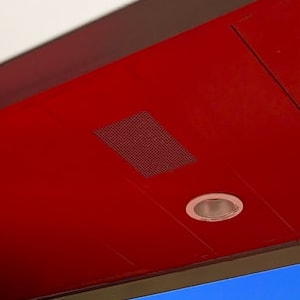turn a corner: Idiom Meaning and Origin
What does ‘turn a corner’ mean?
The idiom "turn a corner" means to make progress or experience a positive change, especially after a difficult or challenging period.

Idiom Explorer
The idiom "wheels are turning" means that progress or action is happening, often in a slow or deliberate manner.
The idiom "up hill and down dale" means to travel over various types of terrain or face different challenges. It indicates a journey that involves ups and downs and requires effort and persistence.
The idiom "up against it" means to be facing a difficult or challenging situation where there are few options or resources available. It signifies being in a tight spot with little or no room for maneuvering.
The idiom "turn of events" refers to an unexpected change or shift in a situation or sequence of events.
The idiom "turn into" means to undergo a transformation or change, typically resulting in becoming something else or adopting a different form or state.
The idiom "turn heads" means to attract attention or make people notice and look at someone or something because of their exceptional appearance or behavior.
The idiom "turn back the clock" means to go back in time, undoing or reversing the effects of previous actions or events.
The idiom "turn a trick" refers to the act of performing a task or solving a problem, often in a clever or skillful way. It can also have a negative connotation, implying the use of deception or manipulation to achieve a desired outcome.
When used as an idiom, "turn around" means to change direction, to reverse a situation, or to make a significant improvement in a short amount of time.
The idiom "turn a profit" means to make a financial gain or earn a profit from a business or investment.
Revelation in Shadows
The idiom "turn a corner" is a commonly used expression in the English language, typically conveying the idea of making progress, overcoming difficulties, or experiencing a positive change in a situation. It is a metaphorical phrase that has its roots in physical movement and spatial orientation.
When someone turns a corner, they change direction or shift their path. They leave behind one environment or situation and enter into a new one. This shift or change is the essence of "turn a corner," an idiom that represents a significant and positive change or improvement in a situation or an individual's circumstances. It indicates moving beyond a difficult or challenging period and signifies that better times are approaching.
The idiom "turn a corner" is versatile and can be used in various contexts. It describes personal growth, recovery from an illness or setback, improvements in business or financial situations, or even societal progress. It is a powerful expression that embodies the idea of progress and positive transformation.
One related idiom is "take a turn for the better." This phrase signifies a significant improvement in a situation. When someone or something takes a turn for the better, it means that they have experienced a positive change, often unexpectedly. This idiom further emphasizes the idea of improvement and progress.
Another related idiom is "take a turn." This expression is used to indicate a change in direction, often highlighting a shift from one state, condition, or situation to another. It can be applied to various aspects of life, such as someone's fortune or a project's outcome. "Take a turn" aligns with the notion of "turn a corner" as both idioms involve a change or shift in direction.
One more related idiom is "turn around." This phrase suggests a complete change in a situation, often from a negative or unfavorable state to a positive or favorable one. It emphasizes the idea of a complete reversal or transformation. "Turn around" is closely connected to "turn a corner" as both idioms emphasize positive change and improvement.
When we say "wheels are turning," we mean that actions are being taken or progress is being made. This idiom signifies movement or activity, suggesting that things are happening or progressing in a situation. It is closely related to the concept of "turn a corner" as both express the idea of forward movement and progress.
The idiom "turn into" refers to a transformation or the process of changing into something else. It often denotes a significant shift or alteration in form, character, or nature. "Turn into" can be used to describe a person becoming a different version of themselves or a situation evolving into something new. This idiom shares the theme of transformation with "turn a corner."
When we consider these related idioms, we can see how they further emphasize the idea of progress and positive change inherent in the idiom "turn a corner." They convey the notion that improvement and transformation are possible in various situations and circumstances. Whether it's taking a turn for the better, experiencing a shift in direction, making a complete turnaround, seeing the wheels turn, or undergoing a transformation, these idioms serve to highlight the power and potential of positive change.
"Turn a corner" is an idiomatic expression that symbolizes progress, positive change, and overcoming obstacles. Its metaphorical meaning has evolved from the physical act of turning a corner to encompass broader contexts. While the origin of the phrase remains uncertain, its usage in the English language is well-established. The idiom is a reminder that even in moments of difficulty, there is always the potential for improvement and the possibility of a brighter future.
Example usage
Examples of how the idiom *turn a corner* can be used in a sentence:
- After several months of struggling, she finally turned a corner in her career and was offered a promotion.
- The patient had a difficult recovery, but after a few weeks, he turned a corner and began to show signs of improvement.
- The company was going through financial difficulties, but they managed to turn a corner and start making profits again.
More "Progress" idioms



